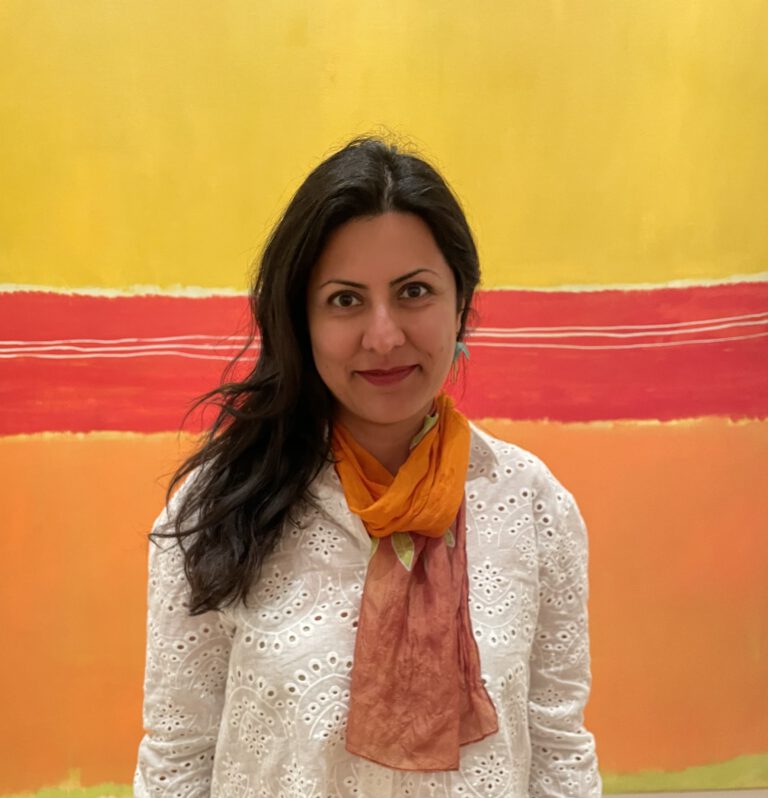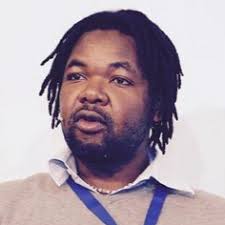About us
Surveillance in the Majority World Research Network aims to expand the scope of surveillance studies to include non-Northern / Western discourses and practices. It is a place for exchange, collaboration, and activism against the undemocratic use of surveillance technologies. Surveillance in the Majority World Research Network facilitates global exchange across groups and institutions active in surveillance-related issues to collaborate, build support networks, disseminate the outcomes of their projects, and make resources and knowledge publicly accessible. These documented ideas, reports, and research outcomes contribute to knowledge production and policymaking but also aim to create a safe and supporting space for researchers and activists who work in politically and socially precarious environments.

Our Story
Surveillance in the Majority World Research Network (formerly Surveillance in the Global South) was founded in 2019 by Azadeh Akbari before finishing her PhD research on controlling women’s compliance with compulsory Hijab in Iran through surveillance technologies. As she published and communicated her research results, it seemed Majority World research was (and is) considered ‘case study research.’ Therefore, the initial intellectual aim of the group was facilitating a dialogue to highlight how universal theories fail to reflect the realities of surveillance in the Majority World. The network insisted that integrating such realities is pivotal for understanding social, political, economic, and cultural aspects of surveillance in a globalised world. Surveillance in the Majority World Research Network is now a working group of the International Surveillance Studies Network. To expand its activities, the network has received funding from the Open Technology Fund (2024-25).
Board members
* Board members will be elected after the Surveillance Studies Conference 2024

Azadeh Akbari
Founder and Director
Azadeh Akbari is Assistant Professor in Digital Transformation at the University of Twente, the Netherlands. She is an EU-funded Marie Skłodowska-Curie Global Fellow (2024-7) for her project Authoritarian Smart Cities. Azadeh is the co-director of the Surveillance Studies Network and the founder and director of the Surveillance in the Majority World Network. She has been a journalist for many years and has worked as a communication manager and community outreach specialist at the UNHCR, UNICEF, and the British Council. Azadeh is the co-editor of two upcoming books on Critical ICT4D (Information & Communication Technology for Development) by Routledge with Silvia Masiero, and the International Handbook of Critical Surveillance Studies by Edward Elgar with Murakami Wood, van Brakel, & Bruno. She is also an associate editor for the journals Surveillance & Society and Information Technology for Development.

P. Arun
Board Member
P. Arun is a Post-Doctoral Fellow at the Moturi Satyanarayana Centre for Advanced Study in the Humanities and Social Sciences, Krea University, India, where he is working on the history of telegraph surveillance in late Colonial India (1910–1940). He holds a PhD in Political Science from the University of Delhi, India. His research interests span the intersection of politics, law, and technology, with a particular focus on historical evolution of communications surveillance and privacy. His work has been published in various edited volumes and journals, including Indian Law Review, Economic & Political Weekly, Surveillance & Society, and the National Law School Journal.

Yung Au
Board Member
Yung Au is an OTF Senior ICFP Fellow at the School of Geography and the Environment, University of Oxford. Her PhD examined the commodification of state surveillance by exploring the marketplace of data-driven technologies using abolitionist frameworks. Her postdoctoral fellowship continues the investigation into the surveillance industrial complex where it maps the supply chain of surveillance technologies tailored to government and military clients. She was previously an Associate Lecturer at the Creative Computing Institute, University of the Arts London teaching on modules including “Surveillance Futures” and “Human Rights & Computation”.

Jimmy Kainja
Board Member
Jimmy Kainja is a Senior Lecturer at the University of Malawi. He has over ten years of experience teaching Media, Communication and Cultural Studies. He is also a Communication and Public Relations Coordinator at the University of Malawi’s Centre for Agri-Food Systems. He holds a BSc in Media Studies and an MRes in Media and Communication from London Metropolitan University. He is an adjunct research fellow at the Institute of Public Opinion and Research, an editorial team member (politics and society) for the University of Malawi’s Kachere Series, and a mentor for the University of Malawi’s Journal of Humanities mentorship programme. Kainja has also held various leadership positions, including President of the University of Malawi’s academic staff union, CCASU and Deputy Head of the department.

Dima Samaro
Board Member
Dima Samaro is a Palestinian lawyer and tech policy expert with over a decade of experience focusing on the nexus of tech, law, and human rights in the Middle East and North Africa (MENA) region. She currently leads research on digital society, rights and governance for DAI’s Digital Ecosystem Country Assessment project (DECA) in Tunisia. Dima has a proven track record in digital rights advocacy, having previously worked for leading organizations like Internews, Business & Human Rights Resource Centre, Access Now, among others. Her work has focused on policy analysis and advocacy on emerging regulations such as cybercrime laws and data protection frameworks, while also addressing human rights concerns arising from the deployment of new technologies, including online censorship, content moderation, telecoms policies, migration surveillance, and platform accountability. She also serves as a Board Member for Innovation for Change MENA Hub, and is a fellow for the Centre for Digital Resilience where she provides critical support for at-risk individuals and organizations through incident response, threat analysis, and digital security training. Dima regularly writes and speaks on digital rights and the adverse impact of digital surveillance on vulnerable and at-risk communities in the MENA region.

Jaseff Raziel Yauri-Miranda
Board Member
Jaseff Raziel Yauri-Miranda is a fellow researcher at Erasmus University Rotterdam, Netherlands and Associate professor and researcher at the University of the Basque Country. He worked as a postdoc researcher at the University of Deusto, Libera Università Internazionale degli Studi Sociali (LUISS) Rome, and at the University of the Basque Country (UPV-EHU) where he completed a PhD in Society, Politics and Culture. He has a background in History and Political Science from the Federal University of Minas Gerais (UFMG), Brazil, and University of Santiago de Compostela (USC), Spain. His research fields include accountability, governance, surveillance, and security policies in Europe and Latin America. He has obtained the Jean Pinatel Prize of Criminology in 2016 and has collaborated with international organizations, -such as the Harvard University, Massachusetts Institute of Technology (MIT), and the Surveillance Studies Centre, as well as with local initiatives involving social and artistic projects in several cities he has lived.

